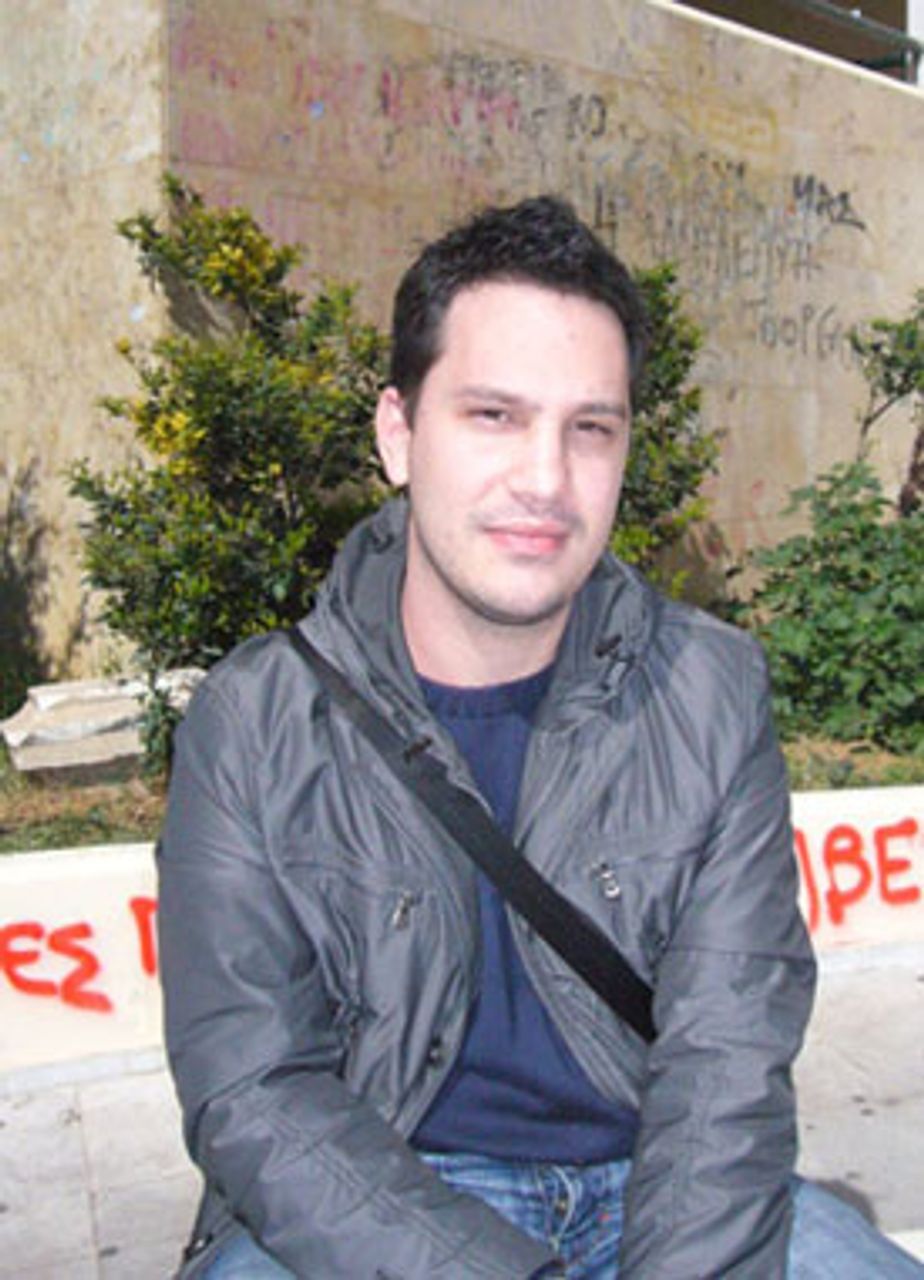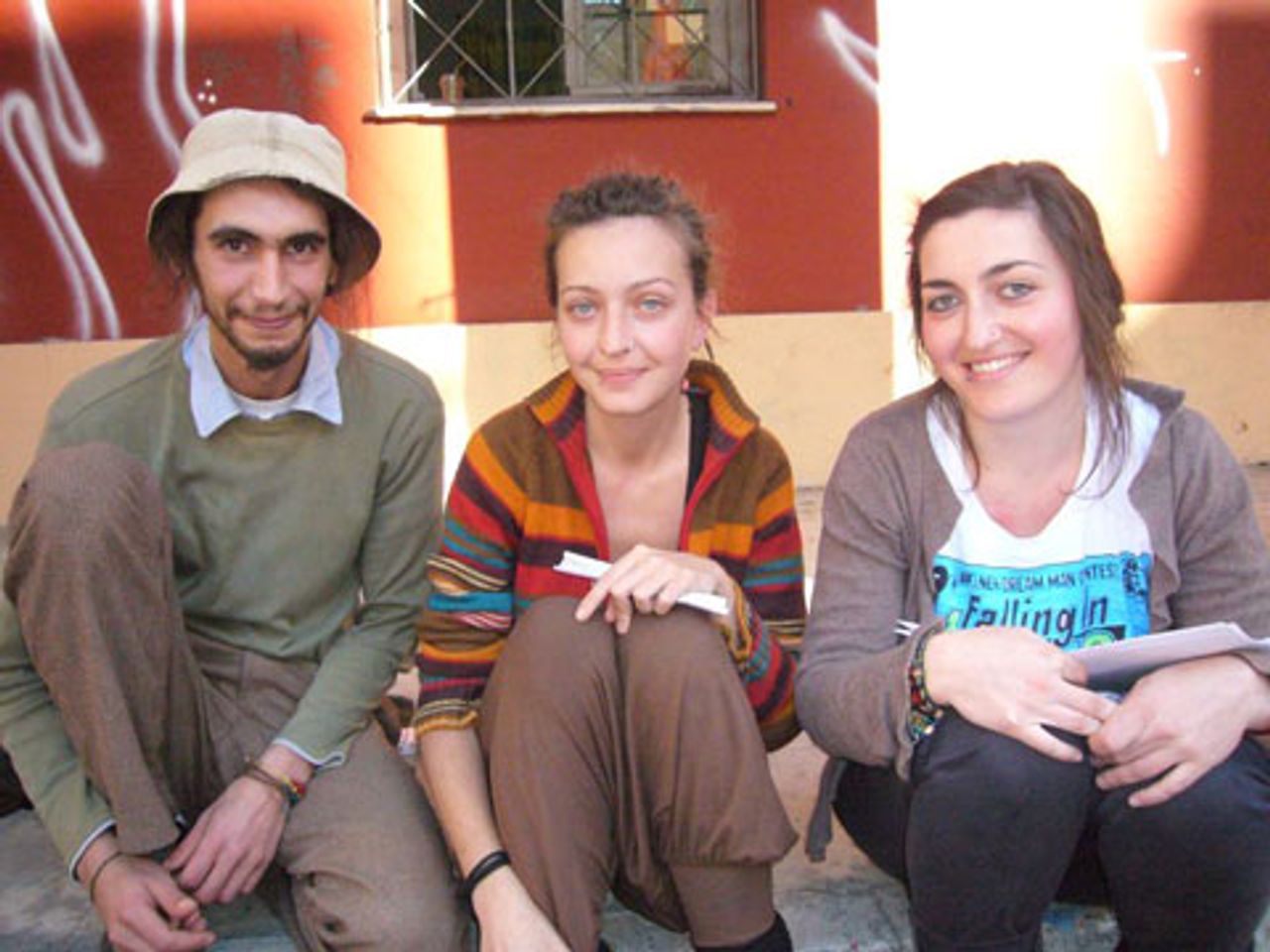A World Socialist Web Site reporting team spoke to students at Athens University and Athens Polytechnic. Some had participated in the recent strikes and protests against the austerity measures being implemented by the PASOK social democratic government of George Papandreou. The students also spoke about the cuts in education spending that have been ongoing for several years.
Severe cuts have been imposed, even before the onset of the current debt crisis. In 2008, Minister of Economy and Finance George Alogoskoufis, of the then-governing New Democracy party, cut €280 million (1 percent) from education spending. This was part of a general slashing of the budget in public spending. In the five years to November 2008, expenditure on education had been constantly reduced, and by the end of 2008, total education spending stood at just 2.9 percent of gross national product, the lowest in the European Union.
Last year, a number of universities protested to the education ministry in opposition to their decision to stop paying for subscriptions to scientific magazines that are essential to teaching staff. Another university also protested and began legal proceedings against the government for the non-payment of contracted scientific research.
The WSWS team spoke to John, a first-year law student at Athens University. He said, “All students here are objecting to these measures. We are disappointed in PASOK and the other parties. I joined in with all the recent protests against the government. I think we have a responsibility to participate, because in future years we have to find a job and we have parents as well who also struggle.
“Some students think there is a difference between us and the workers, but there is not. The only difference is in the number of years we have been alive. In five or six years, we will be in the employment market. My parents are both civil servants, and the government is trying to reduce the number of civil servants.
“It is very hard for our families to live. They need to pay for our accommodation. It is difficult for some students to work at the same time as they study. At the moment, the government spends about 3 percent on education; we want this to be at least 5 percent. They tell us our education is free, but we have to pay for all our textbooks.
“PASOK said before it came to power it would change things for the better, and then they said they have now got a situation they didn’t anticipate. If they didn’t know, they should have known and if they knew, they were liars. So in both cases they have to be blamed for this.
“At the moment, we do not have the right to a job. After we finished university, the government does not help us find a job. In Portugal and Italy, there are also many workers who are struggling and without jobs. I hope that while government are antagonistic to each other that the citizens, the workers will fight together.”
Angelo is a fourth-year law student. He is a supporter of Antarsya (Anticapitalist Left Cooperation for the Overthrow), but is not a member of any political group within it. He said, “I have actively participated in the demonstrations. I think these austerity measures are permanent and here to stay. I think what is happening in Greece is going on across Europe, and they are trying to lower workers’ living standards. They are telling us that these measures are necessary if we want to survive this economic crisis. But I think this was always part of their strategy to do this.”
When asked what he thought about the trade unions not organising any more strikes against the government, Angelo said, “The government have very good relations with the heads of the trade unions, and this is the main problem that we face now in Greece. The heads of the unions are in the same party as the government. The unions don’t continue the strikes, because they support the government.”
 Dimitris
DimitrisDimitris, also a law student, said he voted for PASOK in the last election: “But the measures they brought in are not socialist at all. It wasn’t just them. None of the Greek governments solved the problems over the last years. They have just hidden the problems. My family supported PASOK, but now we think they are more conservative than the Conservatives. They have lost our trust.
“I think if there had been a genuinely honest socialist party they could have resolved these problems, because they wouldn’t have taxed poor and middle class people. They would have taxed the rich. But the problem is these parties get their support from the rich people.”
Dimitris said he did not agree with the parties who claimed to be left-wing, including the Communist Party of Greece, SYRIZA (Coalition of the Radical Left) and Antarsya. “They say they are against the government measures, but do not say what they are doing instead. They don’t have any plan to resolve the crisis.”
 Atlas, Ireny, Rania
Atlas, Ireny, RaniaThe WSWS spoke to students at the Athens Polytechnic School of Architecture. Ireny has been studying architecture for seven years. She said, “I support the strikes, but one of the problems is that the struggles are not really based on everybody being mobilised against the austerity measures. Working class people are being attacked and not the people who have money. Last year, they paid €28 billion to the banks, and now they are taking money from the lowest social classes to make up for this. But I think things are starting to change now. People are becoming aware that they are being lied to. People are starting to wake up and resist.”
When asked about the trade unions, Ireny said, “We have had this situation in Greece many times. They seek to divide and rule. The government gives the union leaders privileges and benefits, so they will do what the government says. And this is how they seek to control the workers. I think the unions give their support to the party that offers them the most benefits.”
Ireny spoke about the recent campaign in sections of the German media to demonise the Greek working class, slandering them as “lazy” and saying the austerity measures were necessary. She said, “This campaign was also used by the Greek media for their own interests. They try to convince people that the Germans are saying bad things about you, so now we must prove that we are not lazy and accept the measures and save Greece.”
She explained the problems that students in Greece faced on a daily basis: “We have lots of problems. First of all, the government does not give a lot of money to the universities, so we don’t have basic stuff like books. They are thinking of making students pay for their books. The computer club here is also understaffed. In architecture, students need a lot of money for making models and plotting our plans. At the end of the semester, you have to pay €80 to someone outside the university to plot your designs. It should be done here for free. Also, the university doesn’t support students who need to work until they complete their study. The situation is that most working class people cannot get a university education, because they cannot effort to buy the books.”
Atlas, a former student, had to abandon his study due to financial problems. He said, “I think this is not just a Greek problem, it is an international problem. The government works for the banks and the banks work for the big corporations, and this must change everywhere in the world.”
Rania has being studying architecture for six years. She said, “About 30 years ago, when my relatives came to Athens, they had jobs in the textile industry. Now, all of them are closed. The people in power in Greece think that the common people are stupid. They tell lies in the media and act as if we don’t understand. There are so many scandals and lies involving those in power that we still don’t know all of them.
“With education, they tell us it is free and they give us a list with the books that we need, and it says on the list you have to pay for the books. So how can this be free? An average book costs €30, so for 10 books this is €300.”
